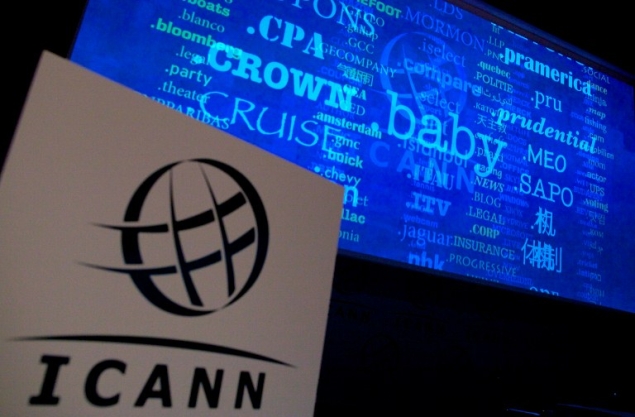- Home
- Internet
- Internet News
- US, ICANN see no rush to transfer oversight of Internet addresses
US, ICANN see no rush to transfer oversight of Internet addresses

The United States said in March it would give up a direct oversight role, which it says has long been symbolic, over the work of the Internet Corporation for Assigned Names and Numbers, or ICANN.
Critics fear that the move may open the door for countries like China or Russia to push against the Internet as an open platform.
(Also see: Meeting on US handing over Internet control inconclusive)
A hearing of the House of Representatives' communications and technology panel, Assistant Secretary of Commerce Lawrence Strickling and ICANN Chief Executive Fadi Chehadé vowed to make sure the transfer, expected in September 2015, goes smoothly.
"I stand in front of you today with a firm commitment that we will run an open and transparent process. We will keep it calm and wise. We have no rush. It's more important to get it right than to rush it," Chehadé told lawmakers.
ICANN, under a contract from the Commerce Department, manages the master database of such top-level domain names as .com and .net and the corresponding numeric addresses that ensure users find proper content when they look for websites.
Commerce has overseen the process since the Internet's inception but has contracted out the management of domain names and other Internet infrastructure to ICANN since 1998 and has long planned to phase out its stewardship.
Republican lawmakers in particular have raised the alarm. Three House members have introduced a bill that would prevent the Commerce Department from shedding control of ICANN's work before Congress reviews a nonpartisan study of what the move what entail.
"If there are not sufficient safeguards in place to prevent foreign government intrusion, then this concept should go no further," Representative Greg Walden, who chairs the communications subcommittee, said at the hearing.
ICANN uses a multi-stakeholder model to set policies, with voting power given to governmental, academic, private sector and other interested representatives.
Strickling said the Commerce Department would reject any proposals to transfer its stewardship to a mechanism that relied only on government representatives.
"For 15 years ICANN has operated without one government or any government capturing the decision making," Chehadé said. "I agree that people will talk about capturing, but they haven't."
Russia, China and other countries have been trying to move more Internet control to the United Nations' International Telecommunications Union, which is composed only of national governments. In December 2012, the United States and its allies thwarted a move inside the ITU to give national governments more control of website addresses.
Recently other governments have pressed for the United States to formally shed its stewardship over ICANN as tensions over Internet spying increase in the wake of disclosures from former National Security Agency contractor Edward Snowden, whose documents showed that U.S. intelligence officials scanned vast amounts of Internet traffic.
(Also see: US agrees to relinquish control of ICANN)
The ICANN community began deliberations on how the change may develop at its meeting in Singapore last week. ICANN expects to post output from that meeting and begin collecting public's comment on April 7, according to Chehadé.
© Thomson Reuters 2014
Catch the latest from the Consumer Electronics Show on Gadgets 360, at our CES 2026 hub.
Related Stories
- Samsung Galaxy Unpacked 2025
- ChatGPT
- Redmi Note 14 Pro+
- iPhone 16
- Apple Vision Pro
- Oneplus 12
- OnePlus Nord CE 3 Lite 5G
- iPhone 13
- Xiaomi 14 Pro
- Oppo Find N3
- Tecno Spark Go (2023)
- Realme V30
- Best Phones Under 25000
- Samsung Galaxy S24 Series
- Cryptocurrency
- iQoo 12
- Samsung Galaxy S24 Ultra
- Giottus
- Samsung Galaxy Z Flip 5
- Apple 'Scary Fast'
- Housefull 5
- GoPro Hero 12 Black Review
- Invincible Season 2
- JioGlass
- HD Ready TV
- Laptop Under 50000
- Smartwatch Under 10000
- Latest Mobile Phones
- Compare Phones
- Samsung Galaxy A07 5G
- Vivo Y500i
- OnePlus Turbo 6V
- OnePlus Turbo 6
- Itel Zeno 20 Max
- OPPO Reno 15 Pro Mini 5G
- Poco M8 Pro 5G
- Motorola Signature
- Lenovo Yoga Slim 7x (2025)
- Lenovo Yoga Slim 7a
- Realme Pad 3
- OPPO Pad Air 5
- NoiseFit Pro 6R
- Xiaomi Watch 5
- Acerpure Nitro Z Series 100-inch QLED TV
- Samsung 43 Inch LED Ultra HD (4K) Smart TV (UA43UE81AFULXL)
- Asus ROG Ally
- Nintendo Switch Lite
- Haier 1.6 Ton 5 Star Inverter Split AC (HSU19G-MZAID5BN-INV)
- Haier 1.6 Ton 5 Star Inverter Split AC (HSU19G-MZAIM5BN-INV)

















